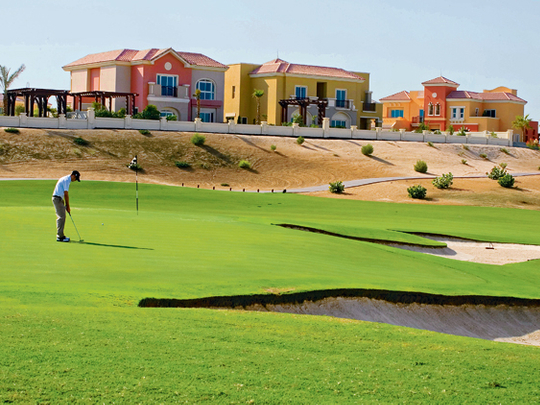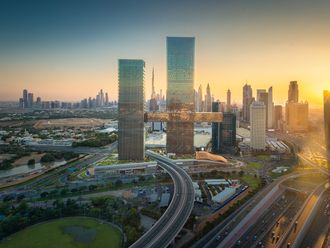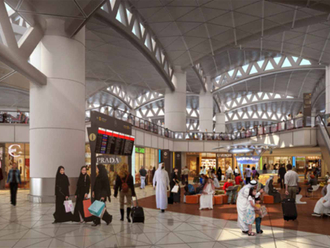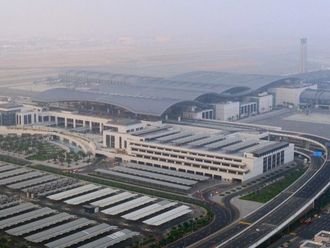
After much gloom, there is finally some good news on the home-financing front. The Dubai and Abu Dhabi mortgage sectors are gradually staging a recovery, with banks lending more freely.
While Abu Dhabi's developers and lenders have hogged the limelight by lowering mortgage rates for upcoming developments such as Al Reem Island, the Dubai Government has also made ground, announcing the formation of Emirates Credit Information Company (Emcredit), the emirate's official credit information agency.
Emcredit — a positive step
Local mortgage-financing consultants believe the formation of the agency will improve transparency in financial transactions and could ultimately inspire confidence in the mortgage sector. Jean-Luc Desbois, managing director of Home Matters Mortgage Consultants, says initiatives such as the establishment of Emcredit and a public debt law are positive steps for the mortgage and real-estate markets.
"This will provide a robust framework and clearly set out the guidelines for both banks and consumers. It will also protect both and naturally enhance confidence in the Dubai market."
Many banks in Dubai are still averse to lending to construction and real-estate sector employees, lawyers and commission-only staff, says Desbois. Also included on some of the banks' blacklists are self-employed people. "Non-resident finance is still virtually non-existent."
However, Desbois says lending in the Dubai market has vastly improved since the dark days of late 2008 and early 2009. "During this period, most banks ceased lending altogether and very few offered over 75 per cent loan to value (LTV) ratio. Today is very different, as liquidity has returned to the market, interest rates have fallen and LTVs increased."
Desbois says that from the first quarter of this year, several banks have offered some of Home Matters' clients preferential terms and better interest rates. These include rates as low as 6 per cent and client-friendly exit fees. "It is a significant step forward for the independent mortgage market," he says.
According to Home Matters, interest rates in the market continue to improve, with rates of approximately 6.75 per cent being available from several lenders. The LTV ratios have also improved with most completed villas in Arabian Ranches, Emirates Living, Victory Heights and the Green Community commanding about80 to 85 per cent.
Reduction in interest rates
Abu Dhabi has witnessed some positive signs recently in its mortgage sector. One of the leading lenders in the emirate, Abu Dhabi Finance (ADF) announced drastic cuts in interest rates in recent months.
Philip Ward, CEO of ADF, says the company has seen a steady and sustained rise in call volumes recently, "which indicates that more people are looking for home finance. We believe this is down to both the availability of more affordable mortgage finance, with our rates starting from 5.75 per cent, and the imminent completion of high-quality residential properties in the Al Raha development and in Marina Square on Al Reem Island".
ADF introduced the new rates to stimulate Abu Dhabi's realty sector and to help the emirate to meet its goals of Vision 2030, says Ward. ADF's interest rates range from 5.75 per cent to 8.5 per cent. According to ADF, the rate reduction will enable borrowers to save as much as Dh2,450 per month or Dh29,400 per annum. The new rates, available to both new and existing customers, are applicable for institutional and individual clients. Ward says ADF's starting interest rate is the lowest on the market, but he advises potential borrowers to do thorough research before finalising any deal.
"The interest rate is one important part of the equation, but they should also consider tenure, deposit, flexibility and the quality of service."
Mortgage providers are now willing to offer higher LTV ratios and lenders such as ADF are offering LTVs as high as 85 per cent. As there is no central record of residential mortgages in the emirate, Ward says it is difficult to say what the average is in Abu Dhabi.
Other lenders follow suitBanks such as HSBC and Standard Chartered Bank followed ADF's initiative and brought rates down considerably.
HSBC's variable mortgage rate for new customers has been reduced from 8.5 per cent to 6.75 per cent. This is available to first-time buyers and new customers who have a 25 per cent deposit, but to qualify for the loan the applicant should have a minimum salary of Dh20,000 per month.
While some professions are blacklisted by some Dubai lenders, Ward says ADF "will continue to lend to any credit-worthy individual, irrespective of their sector of employment". He believes the establishment of a credit-checking system, similar to Emcredit,in the capital would boost the market.
He says Emcredit "is a sign of a maturing industry and a step in the right direction. An agency that covers the whole of the UAE would benefit both lenders and borrowers".
ADF expects to see a lift in the volume of transactions in the months to come, with the growing interest in home ownership supported by the availability of affordable mortgage finance. "We don't anticipate a surge in prices in the near future, but we do expect to see modest increases as new high-quality residential properties become available, thus offering Abu Dhabi residents an attractive alternative to renting in the capital."
With developments in Abu Dhabi such as Al Bandar on Al Raha Beach and Sun and Sky Towers on Al Reem Island nearing completion, and Marina Square ready for delivery, the easing of mortgage lending is good news for potential buyers and will go a long way in helping the industry to get back on track.












